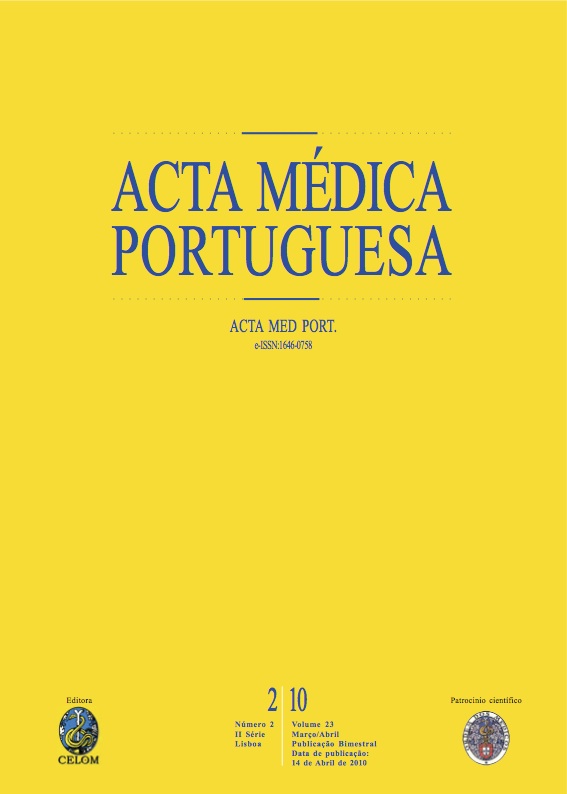Abordagem da menopausa nos cuidados de saúde primários.
DOI:
https://doi.org/10.20344/amp.612Resumo
Menopause is a biological process that occurs as part of aging in women. The increase in average life expectancy and the decline in mortality have caused the aging of global population and, currently, women live about a third of their life in postmenopausal. The General Physician (GP) is usually the first health professional whom women rely on to relieve their menopause symptoms. It is essential for the GP to know how to properly approach women at this stage of their life and how to provide them the best support.To evaluate women in perimenopause and postmenopausal, to recognize its signs and symptoms, and to use properly the Hormone Replacement Therapy (HRT) in Primary Health Care (PHC).We performed a literature search in the PubMed database using the MeSH terms: Menopause, Hormone Replacement Therapy, Primary Health Care. The search was limited to articles published between January 2000 and March 2009 in English, Portuguese and Spanish. Recommendations from Scientific Societies were also searched.During menopause women are more predisposed to change their habits and to adopt healthy lifestyles. The GP plays a key role in health promotion among these women. The most common complaints that lead women to the PHC during perimenopause are vasomotor symptoms, sleep disorders, weight gain, uterine bleeding, urogenital and sexual changes and disturbances of mood and memory. The use of HRT is only recommended for the control of severe vasomotor symptoms that affect women's quality of life, as well as for vaginal atrophy and urinary symptoms. It should be used for a short period of time and in the lowest dose. It is important for the GP to know the existing formulations, the way of administration and the correct monitoring of this therapy.Women experience physical and psychological changes during perimenopause and postmenopausal, resulting from aging and hypoestrogenism. It is essential that the GP recognizes the symptoms and their impact on quality of life of women, offering treatment when necessary. The HRT and its follow-up can be performed in PHC, if the GP know how to use this type of treatment.Downloads
Downloads
Como Citar
Edição
Secção
Licença
Todos os artigos publicados na AMP são de acesso aberto e cumprem os requisitos das agências de financiamento ou instituições académicas. Relativamente à utilização por terceiros a AMP rege-se pelos termos da licença Creative Commons ‘Atribuição – Uso Não-Comercial – (CC-BY-NC)’.
É da responsabilidade do autor obter permissão para reproduzir figuras, tabelas, etc., de outras publicações. Após a aceitação de um artigo, os autores serão convidados a preencher uma “Declaração de Responsabilidade Autoral e Partilha de Direitos de Autor “(http://www.actamedicaportuguesa.com/info/AMP-NormasPublicacao.pdf) e a “Declaração de Potenciais Conflitos de Interesse” (http://www.icmje.org/conflicts-of-interest) do ICMJE. Será enviado um e-mail ao autor correspondente, confirmando a receção do manuscrito.
Após a publicação, os autores ficam autorizados a disponibilizar os seus artigos em repositórios das suas instituições de origem, desde que mencionem sempre onde foram publicados e de acordo com a licença Creative Commons









